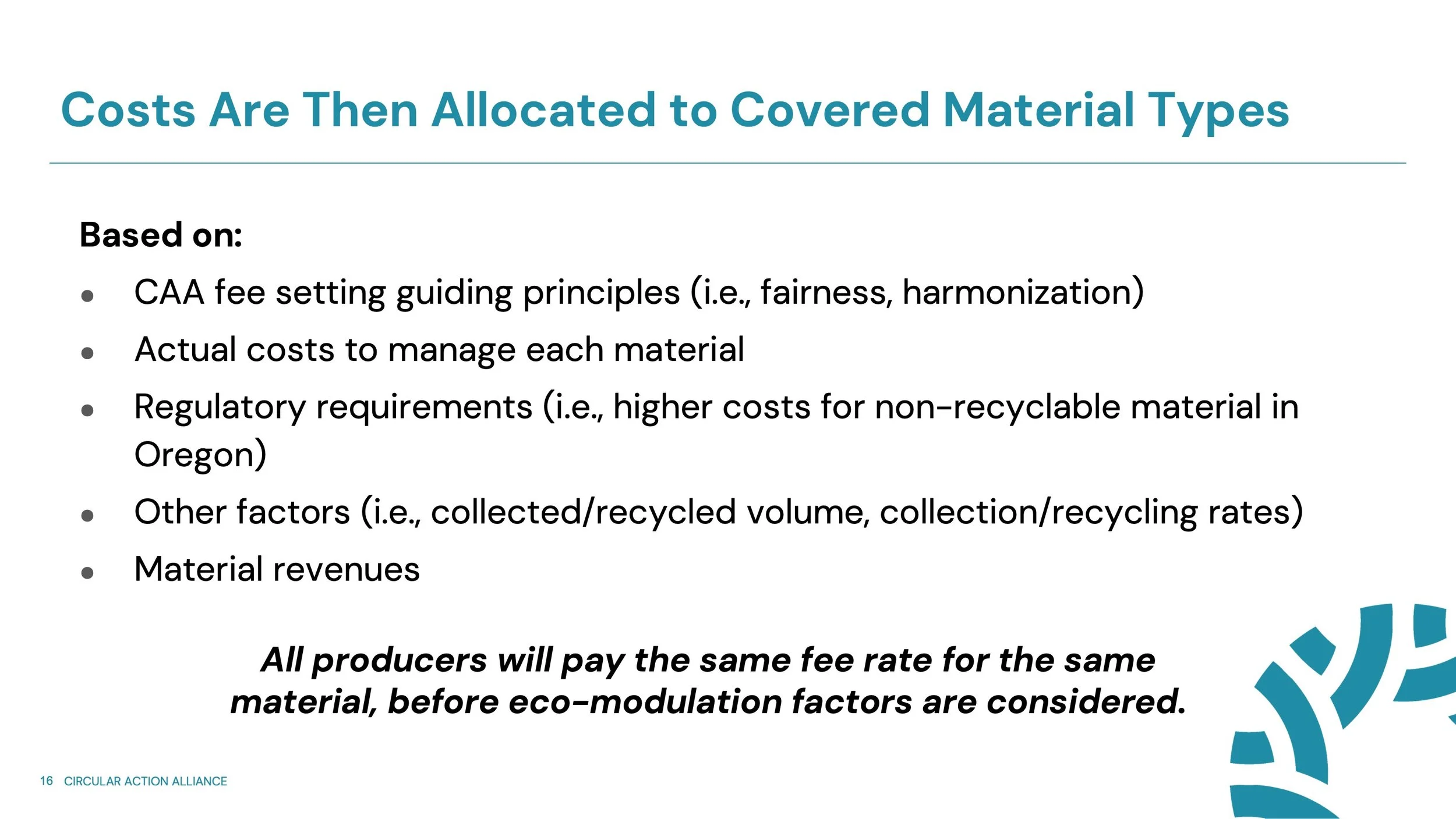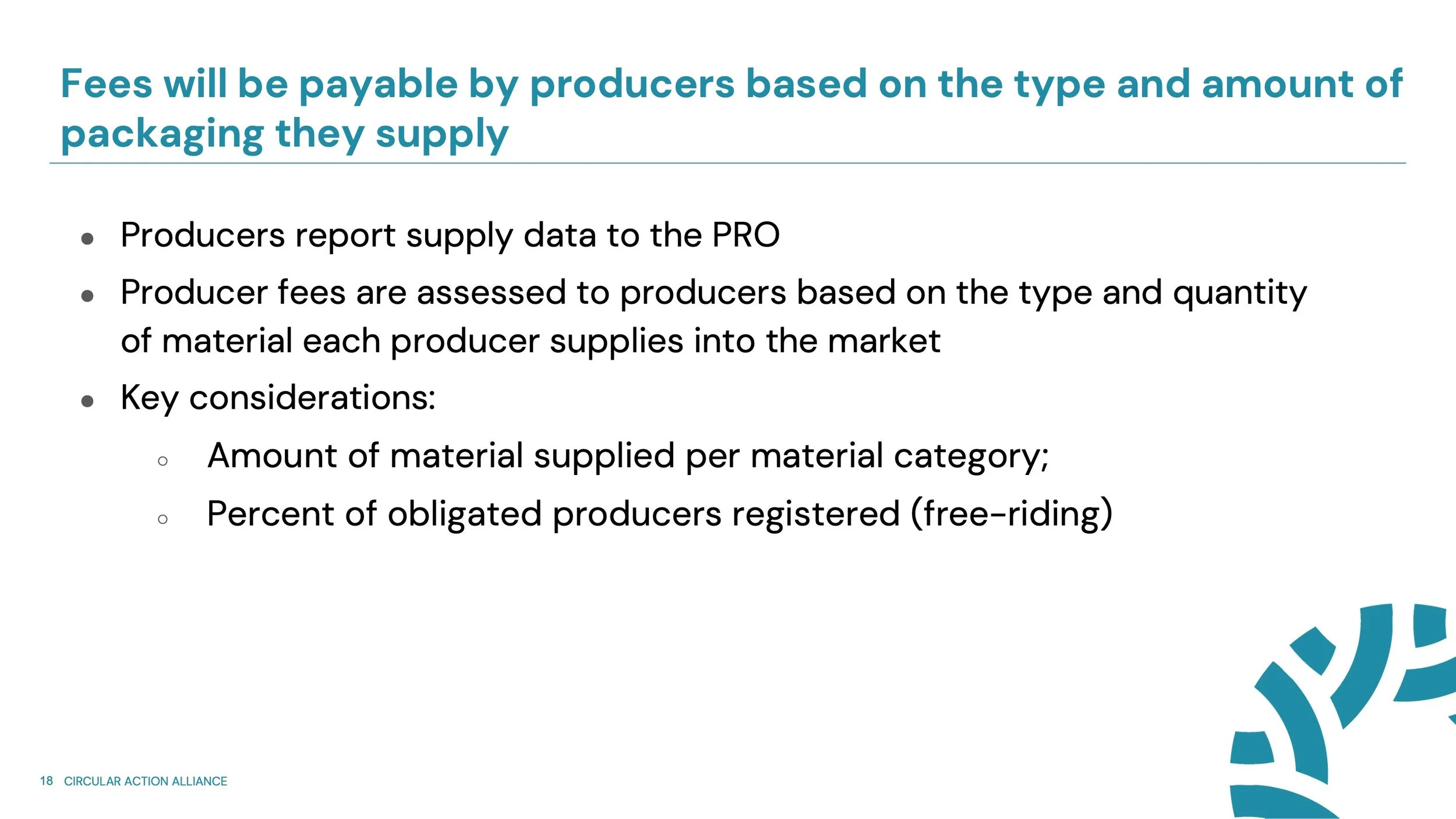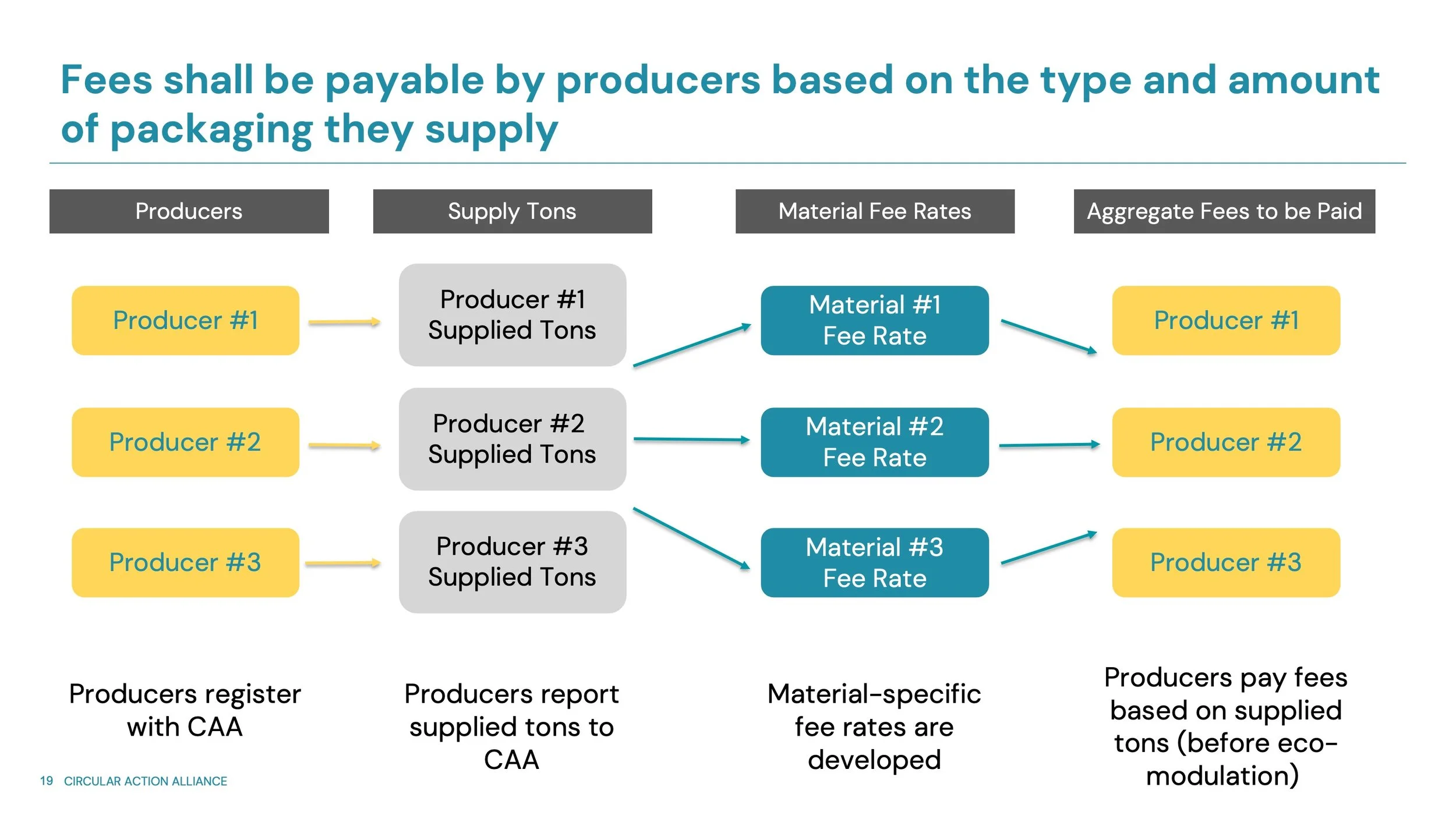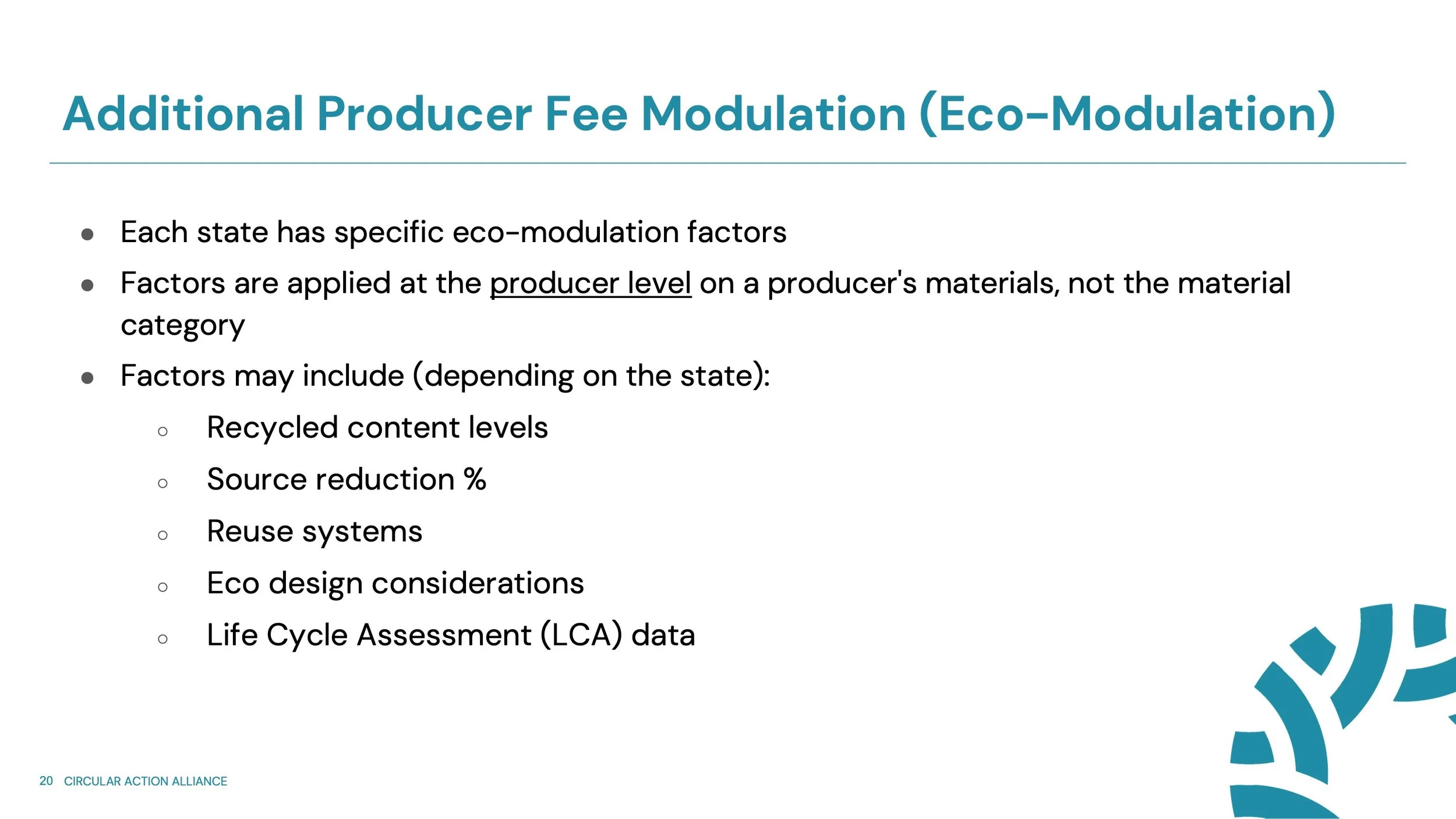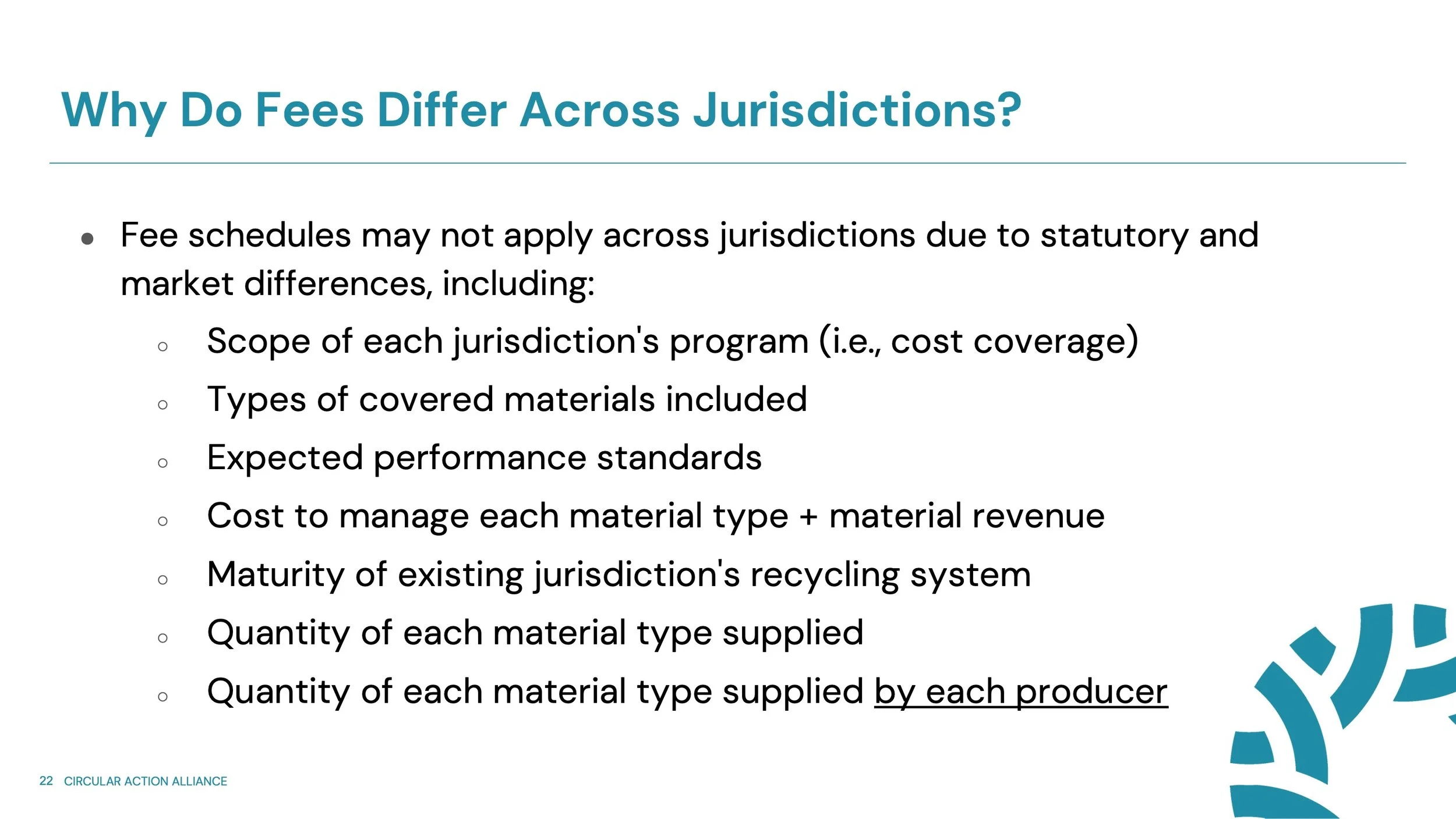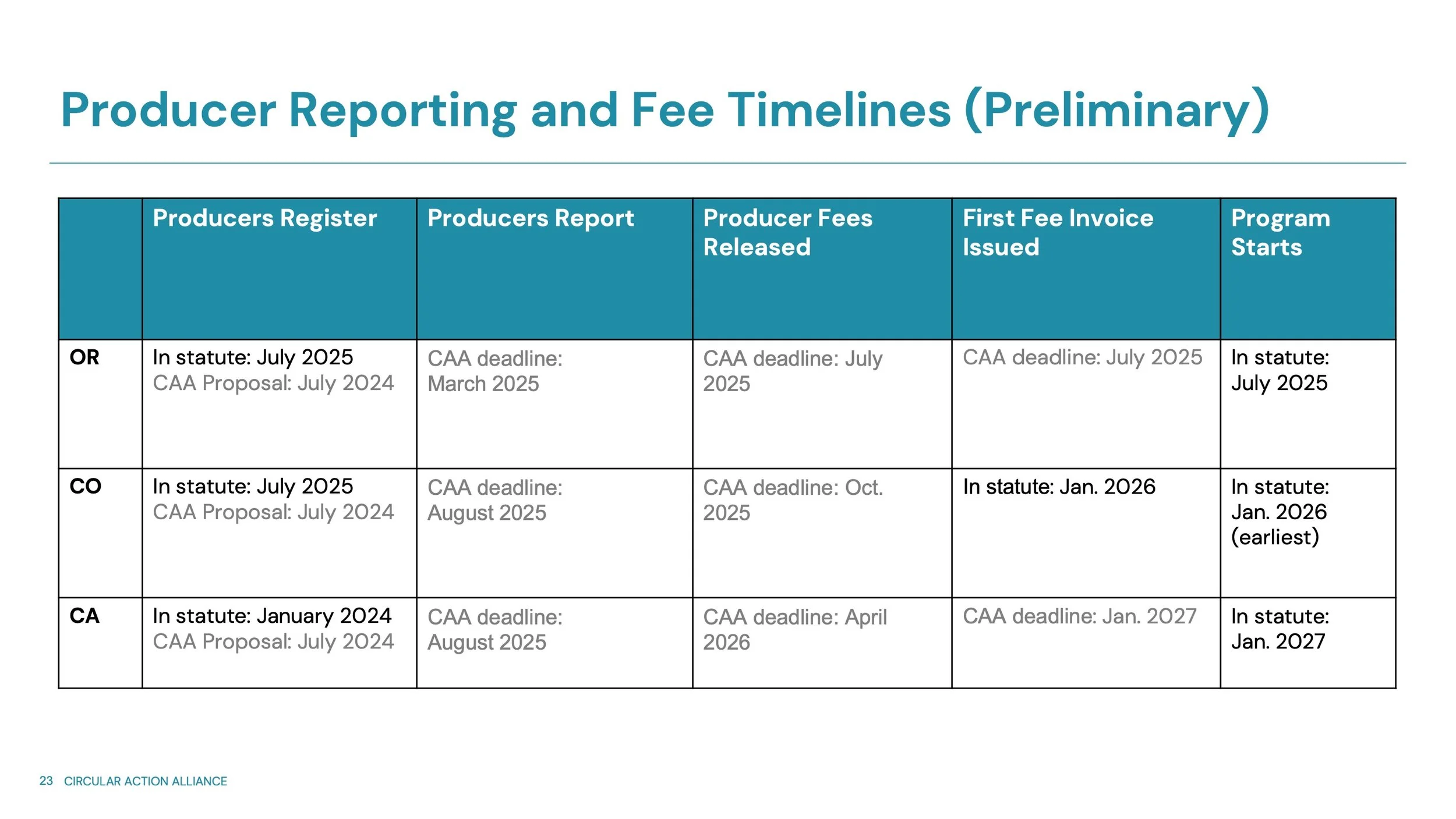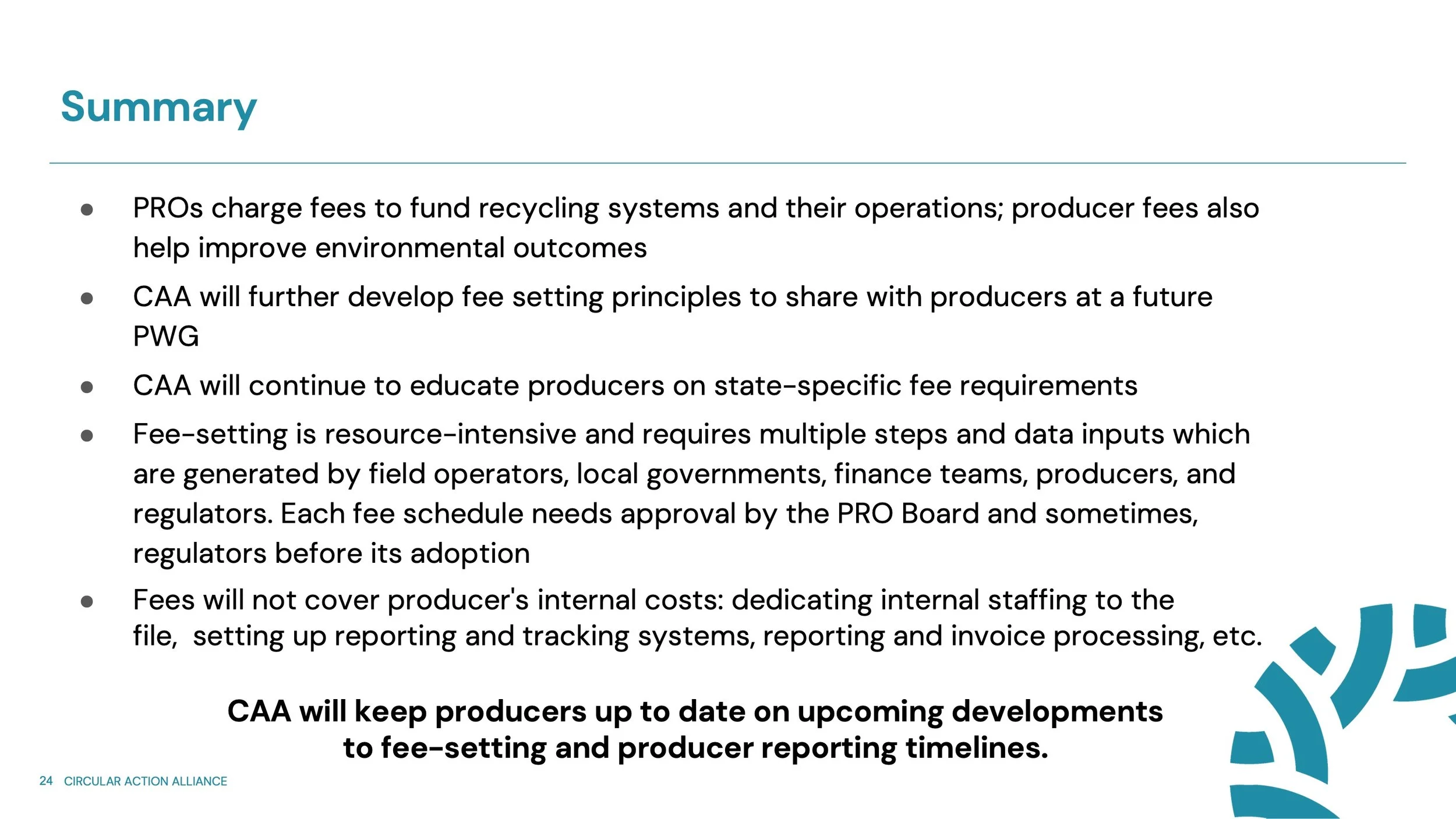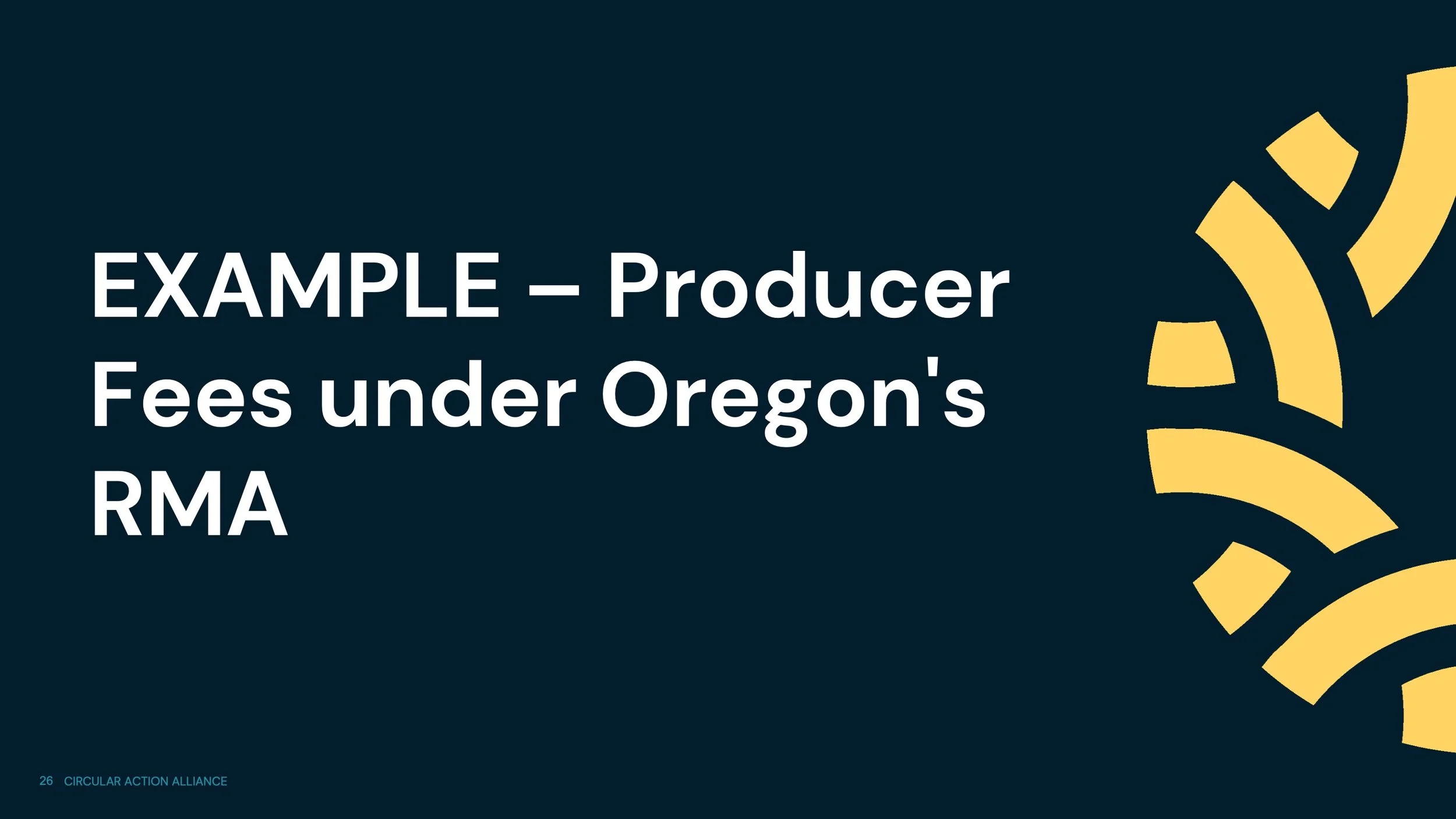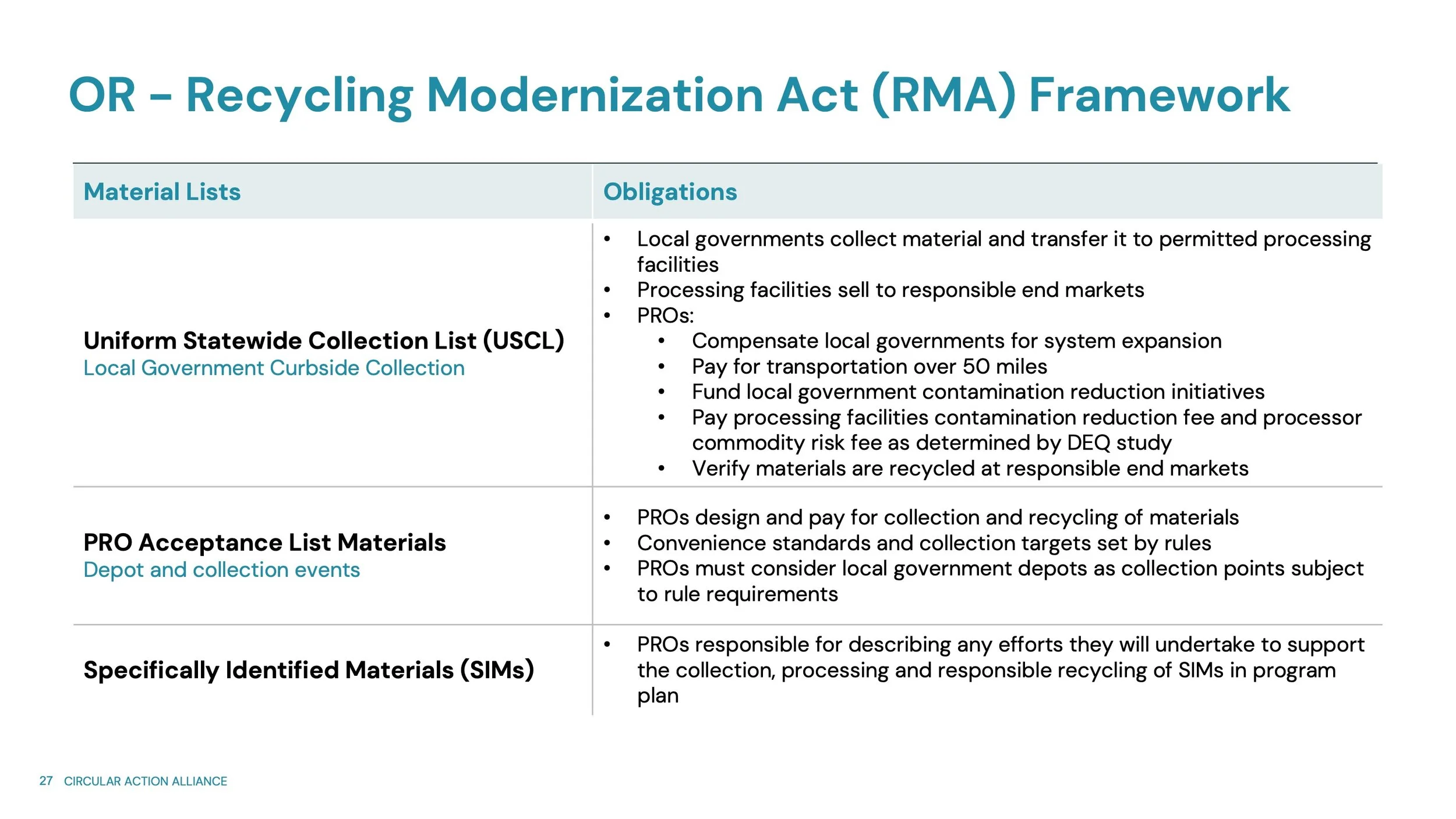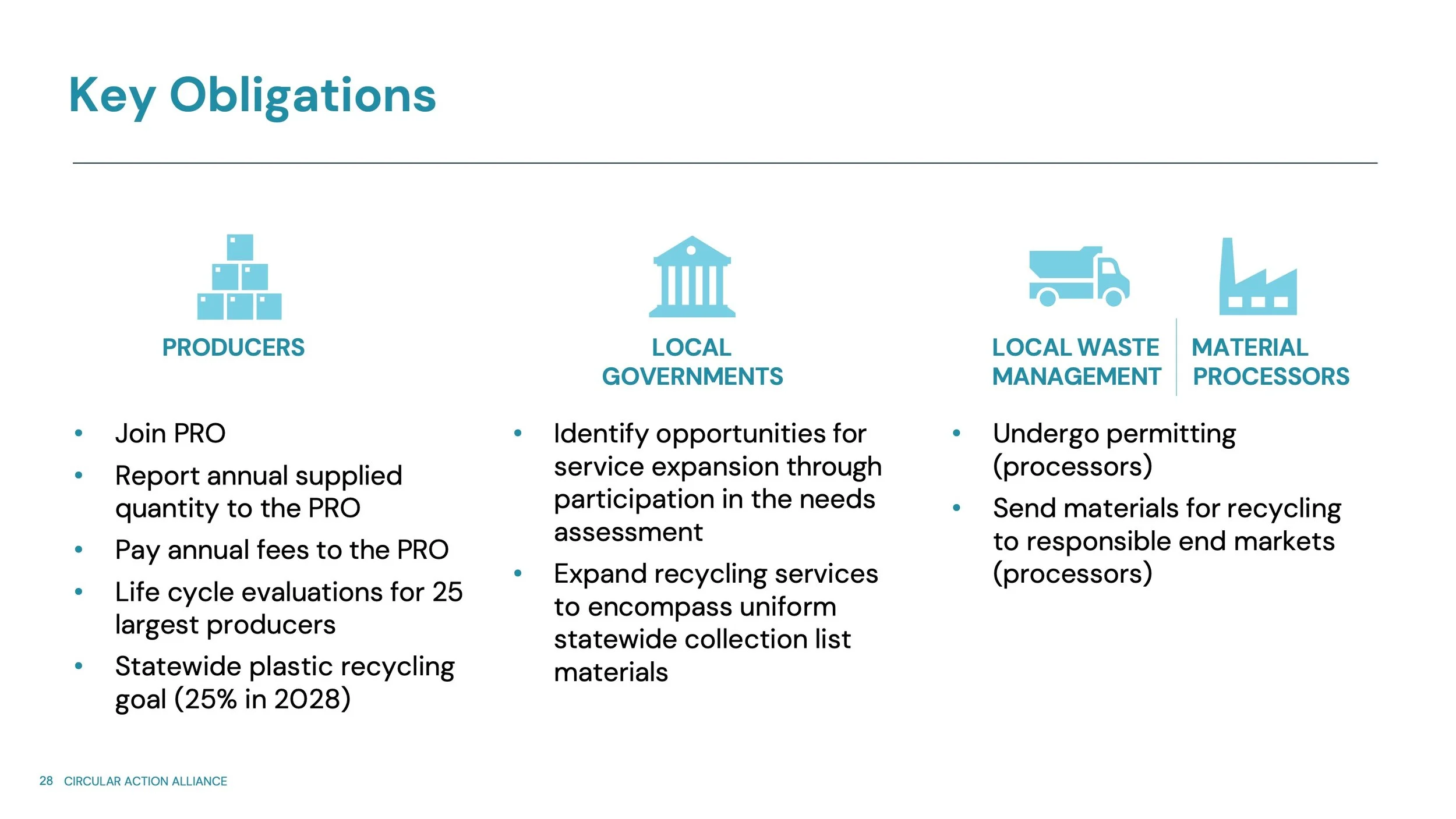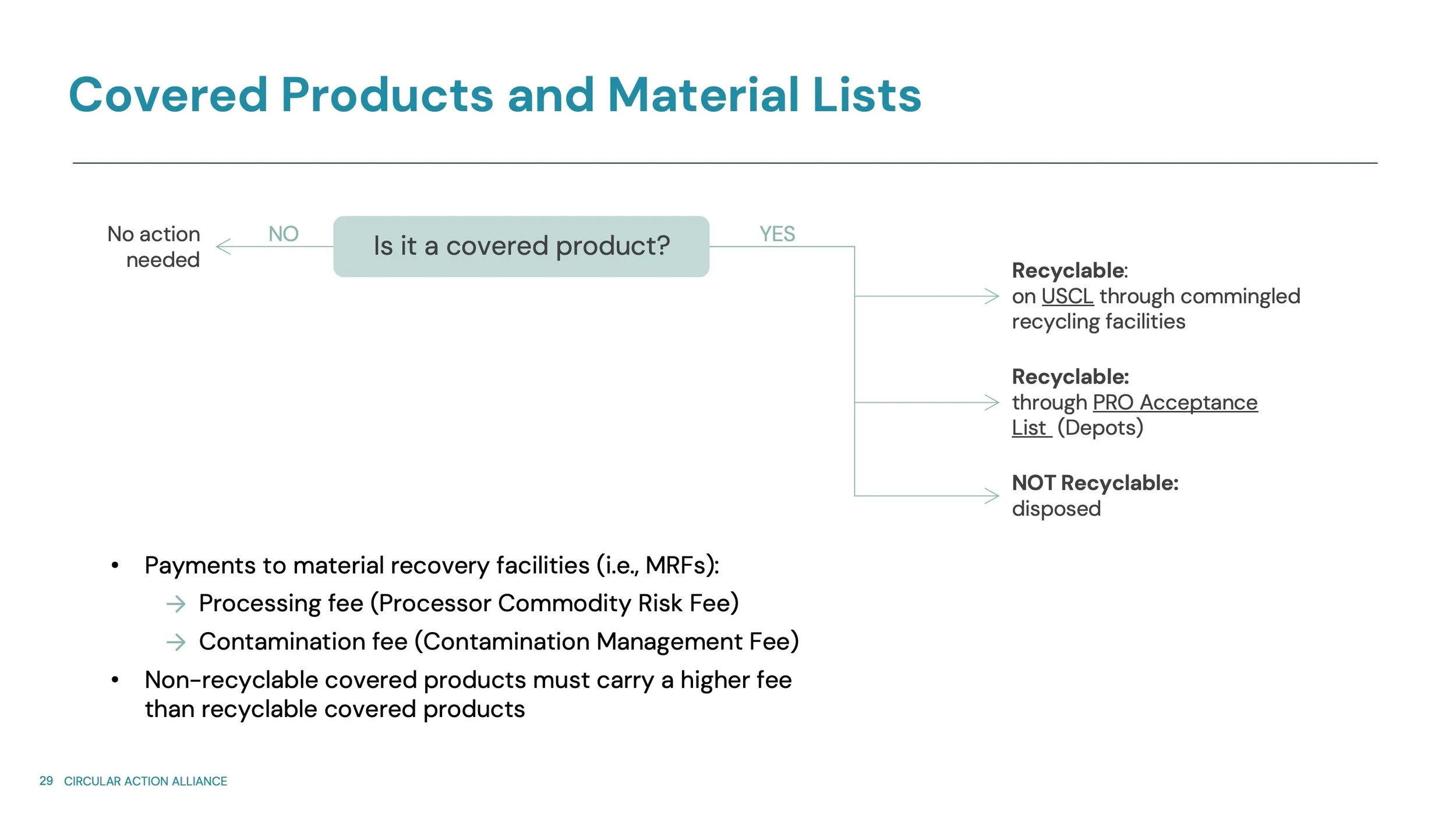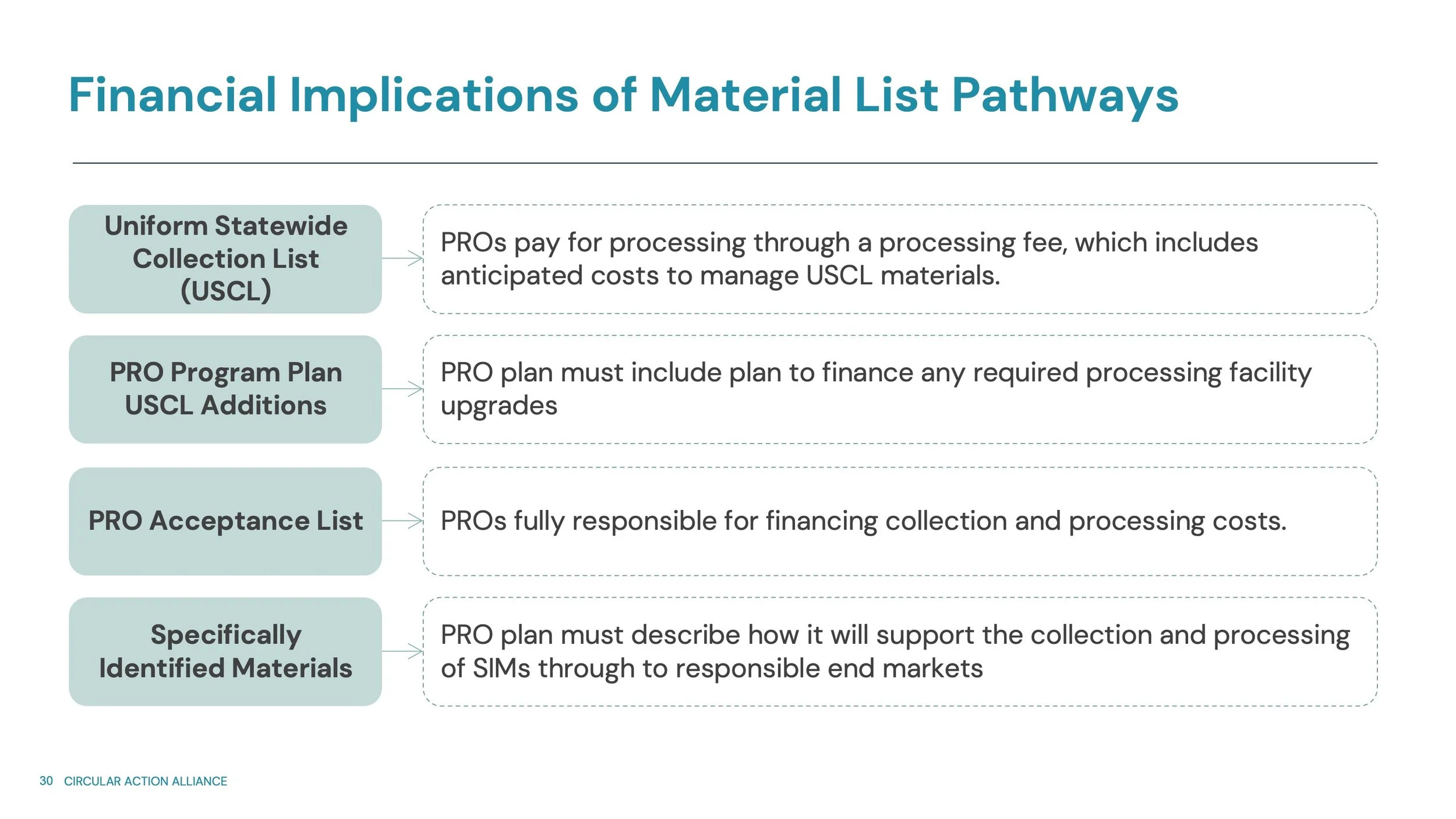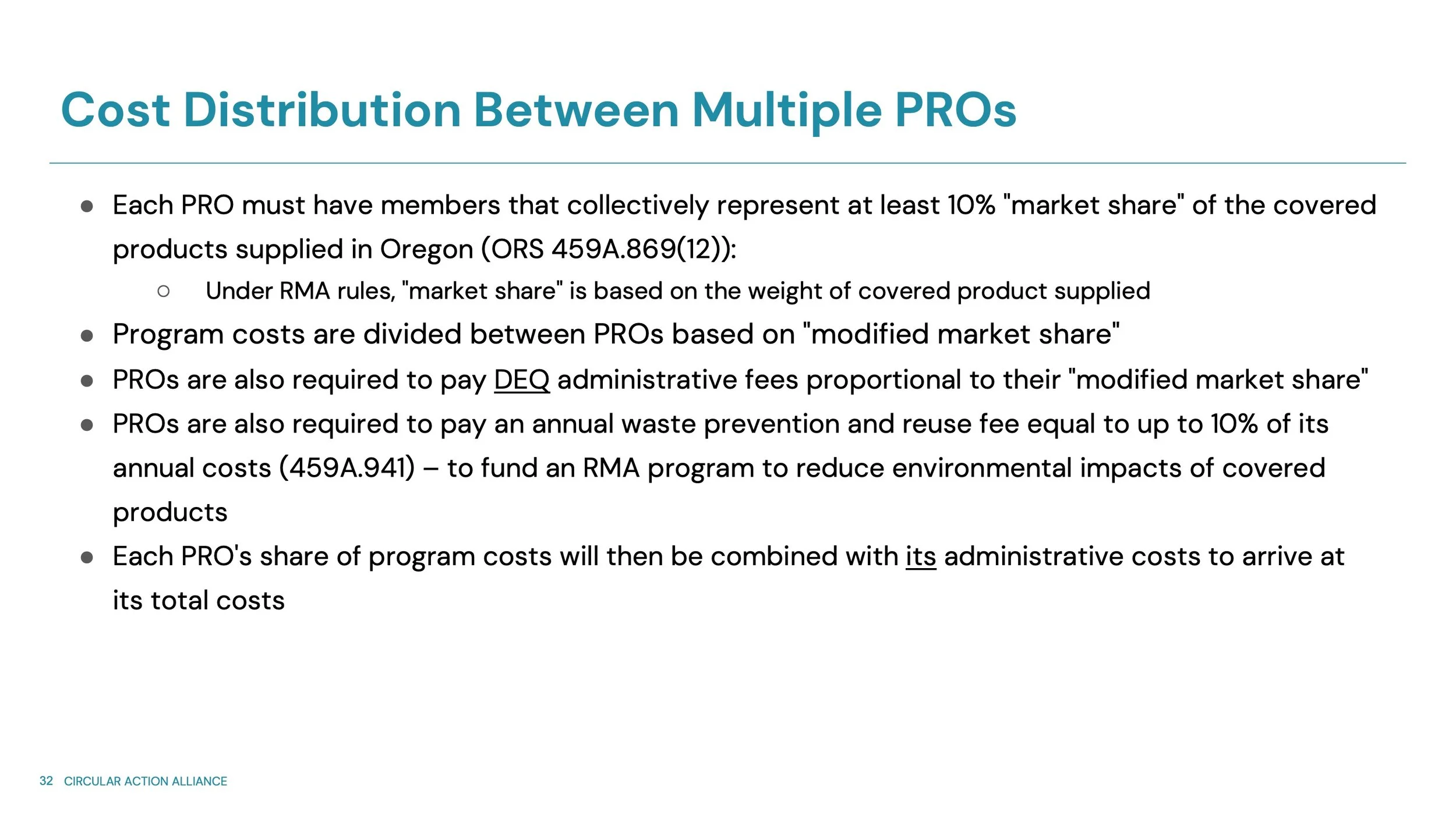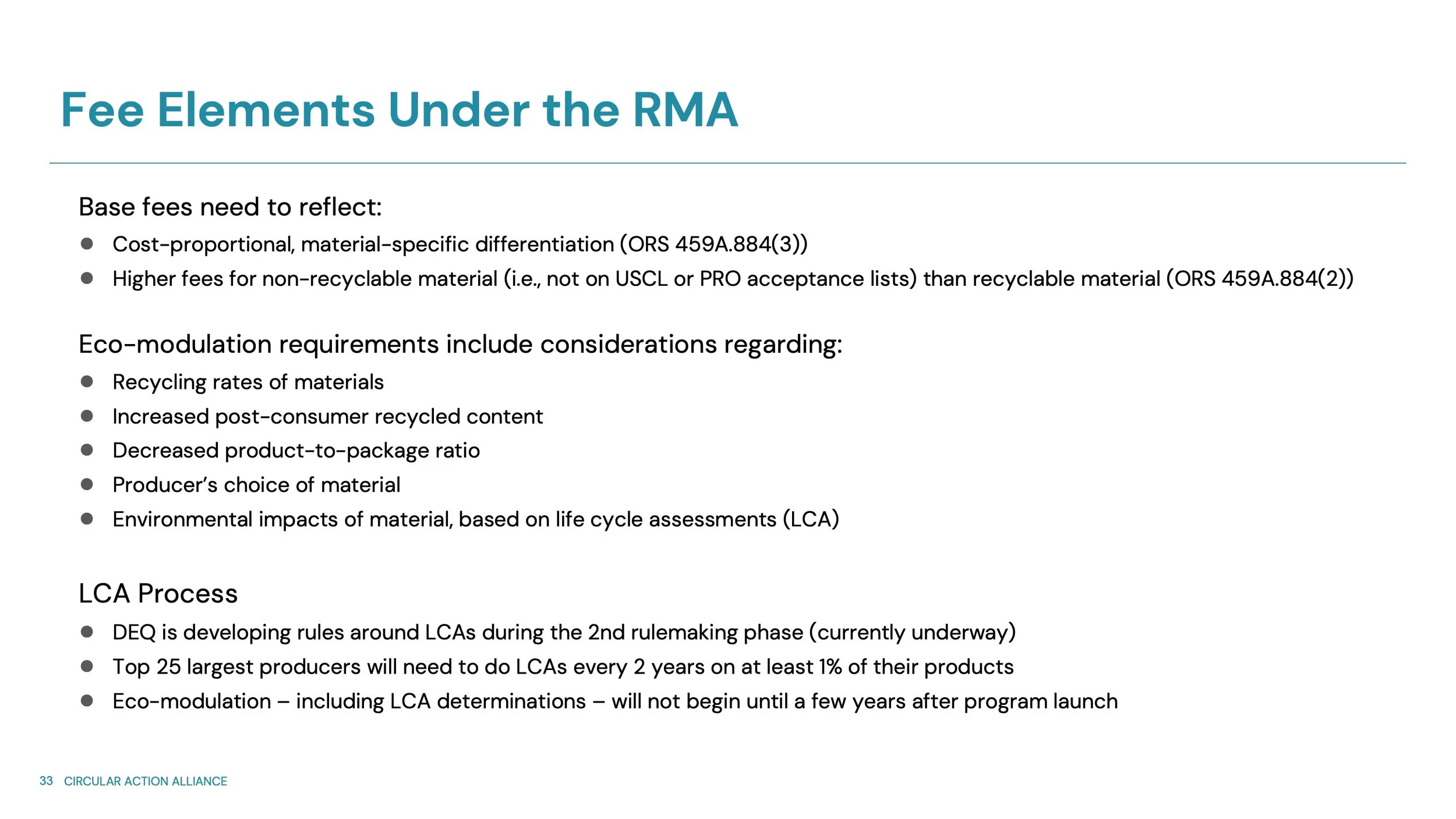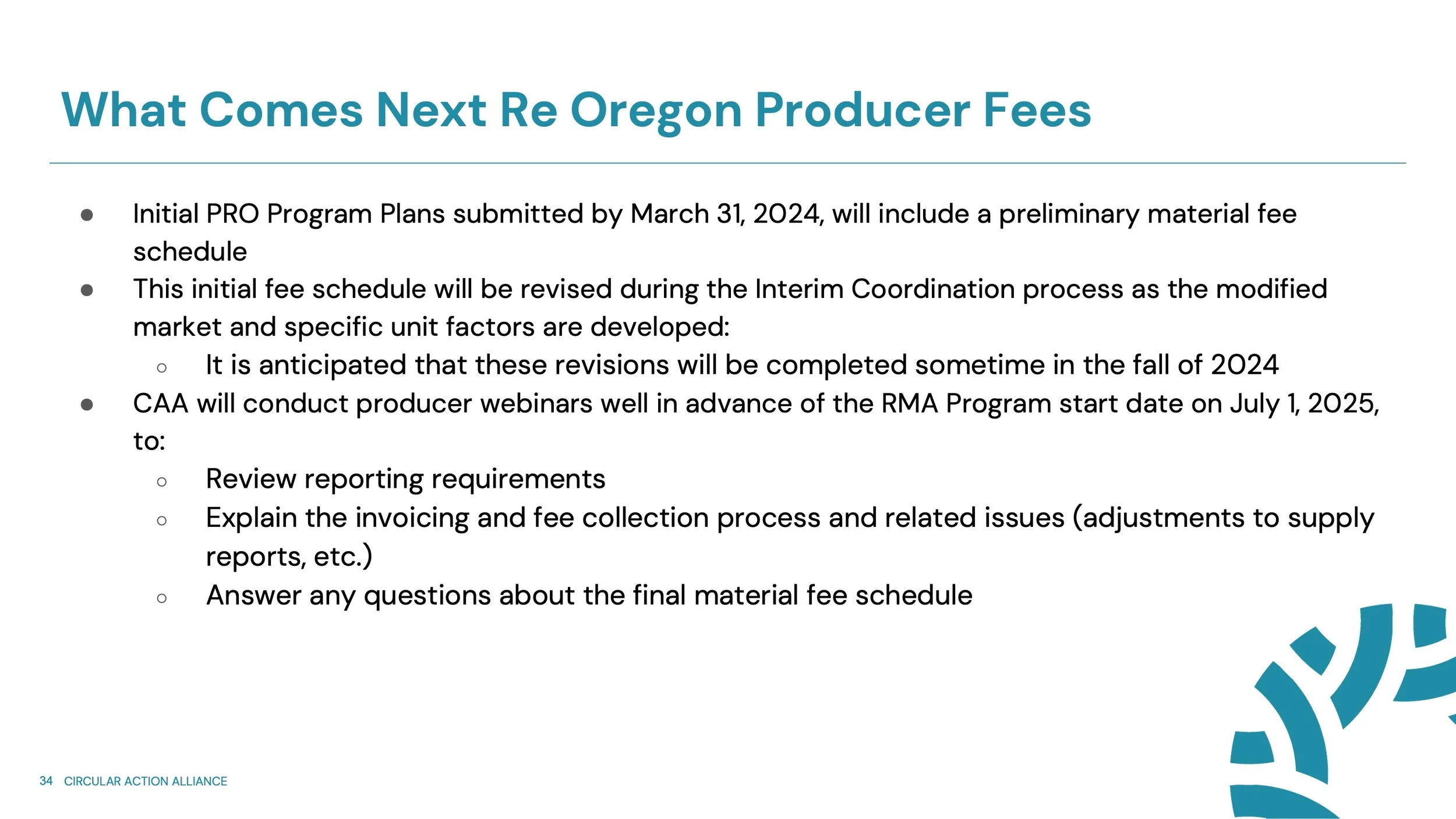Producer Working Group Meeting #3
The Producer Working Group (PWG) is a monthly opportunity for producers, their legal representatives, and trade associations to learn about and discuss priority producer issues. Please do not share this content beyond the group.
January 16, 2024
Presentation
Key Takeaways
California Approval. On January 8, 2024, CAA was selected by CalRecycle to act as California’s single Producer Responsibility Organization (PRO). CAA is collecting producer information to support the registration process.
Conceptual Overview of Fee Setting. CAA provided a conceptual overview of how fees can be set in packaging EPR programs.
The primary steps involved in the fee setting process include:Establishing the total system cost for a jurisdiction (state), including program costs outlined in statute and the PRO’s operational costs. These data are collected from multiple sources, including a statewide needs assessment;
The PRO allocating costs to covered material types;
Producers reporting supply data to the PRO; and
The PRO assigning producer-specific fees to each producer.
CAA will develop a national fee-setting framework to harmonize the methodology used to set fees in each state and ensure fees are fairly charged to producers. Fee rates in each state will not be uniform because they will reflect state-specific attributes and conditions, such as statutory requirements and recycling system maturity and performance. For this reason, CAA strongly advises against relying on fee schedules from other jurisdictions (both other states and countries) for budgeting purposes.
3. A Closer Look at Fees in Oregon. Oregon’s EPR law outlines four specific recycling pathways for materials. The pathway a material follows will have cost implications for that material.
Uniform Statewide Collection List: Materials on this list will be collected through commingled recycling programs by local governments. PROs in Oregon will pay processing and contamination fees to recycling facilities per ton of material managed.
PRO Collection List: Materials on this list will be collected separately by PROs, relying on existing and new recycling depots throughout the state funded by PROs.
Specifically Identified Materials (SIMs): PROs must describe through their program plan how they will support the collection, processing and responsible recycling of materials on this list.
Materials not on a List: Materials not on any of the lists above are considered not recyclable. These materials must carry higher fees compared to recyclable materials.
In addition to the different costs to collect, process, and responsibly recycle each covered material in Oregon, producer fees will be influenced by eco-design factors, including material recycling rates, recycled content rates, package to product ratio, and life cycle assessment-informed environmental impacts. These factors are referred to as eco-modulation and are applied to each individual producer’s fees.
CAA will present additional information on eco-modulation at future Producer Working Group meetings.
Top Producer Questions
-
The Colorado Department of Public Health and Environment (CDPHE) has included a proposed producer registration deadline of July 1, 2024, in Colorado’s draft rules, which will be finalized in May 2024. Registration in Colorado will require producers to submit contact information to CAA.
Early producer registration will help reduce free riders in the system (i.e., non-compliant obligated producers), and provide CAA with more precise producer data to inform accurate and fair fee schedules.
CAA is collecting producer information to facilitate the registration process, including each of the EPR states where companies may be an obligated producer. -
As part of the Oregon program plan submission in March 2024, CAA will provide a preliminary fee schedule reflecting initial estimates of program costs. After the submission, DEQ will work through the Interim Coordinator to refine and validate the program costs before apportioning an interim share of the costs to each PRO. CAA will develop a second fee schedule based on its interim share of costs for the second program plan submission in the Fall 2024.
CAA would caution producers not to rely on the initial fee schedule as the basis for budgeting their EPR compliance costs for 2025. -
• Finalized data reporting requirements are still months away, but companies need to start planning. CAA provided a conceptual framework to guide producer planning at the December 5 Producer Working Group.
-
Covered material categories (CMC) lists are intended to categorize all in-scope materials in a state’s EPR program. If your material is not listed on a CMC list it may be exempted. However, the state’s statutory definition of covered material will ultimately determine what materials are in and out of scope.
















